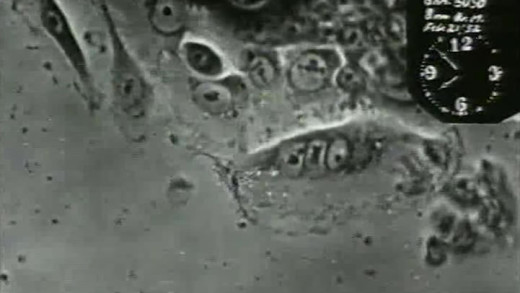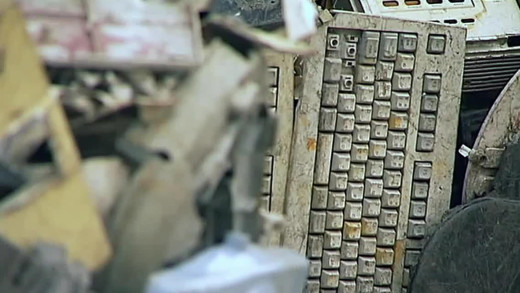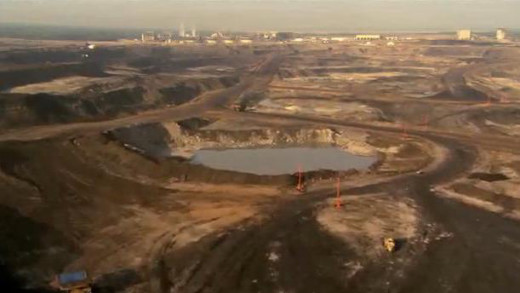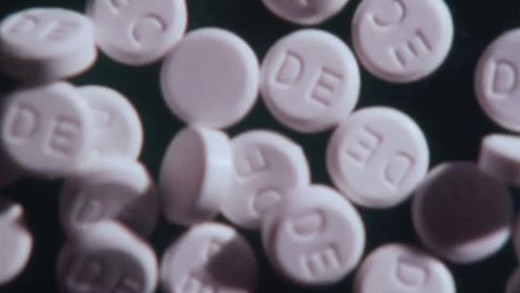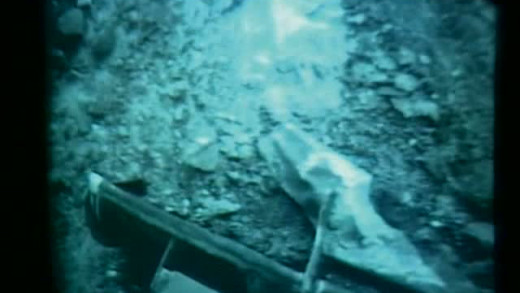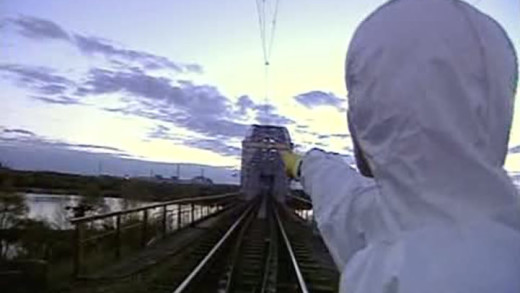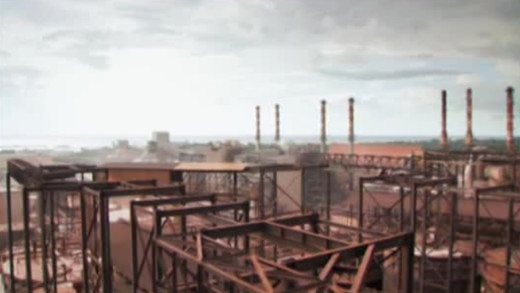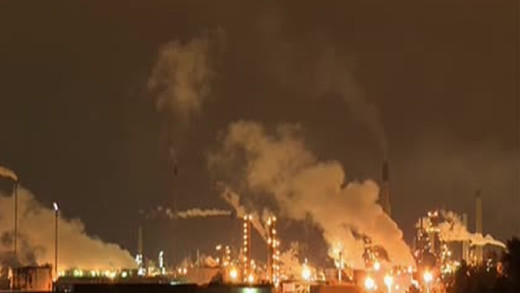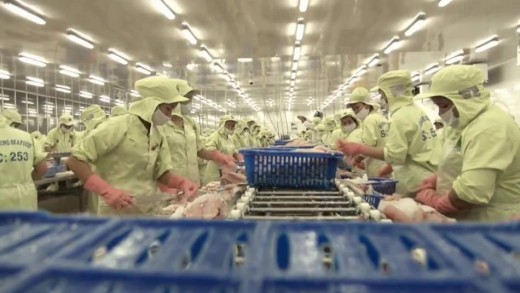The Way of All Flesh traces the story of Henriettta Lacks as she dies of cancer in 1951. Before she died cells were removed from her body and cultivated in a laboratory by scientists in the hope that they could find a cure for cancer. The cells known as the HeLa line have been growing ever since, and the scientists found that they were growing in ways they could not control. The cells transformed modern medicine, the Polio vaccine, but they also became caught up in the politics of our age, shaping the policies of countries and of presidents, and even becoming involved in the cold war, as scientists were convinced that in her cells lay the secret in how to conquer death.
China's factories provide low cost products such as computers and cars to the rest of the world, but the real cost is high with heavy air pollution, contaminated waterways, decimated land, terrible working conditions, widespread cancer and incidences of deaths. China's Dirty Secrets travels across the country to follow workers at factories that assemble computers, then to e-waste dumps, and finally an industrial incinerator burning medical waste, all showing first-hand the extensive environmental impacts of so-called "economic growth."
Canada is now the biggest supplier of oil to the United States, thanks to the Alberta tar sands—a controversial billion-dollar project to extract crude oil from bitumen sands, using a very toxic process that has generated international cause for concern. Four barrels of glacier-fed spring water are used to process each barrel of oil, along with vast amounts of electricity. The waste water is dumped, filled with carcinogens and other chemicals, into leaky tailings ponds so huge that the piles can be seen from space. Downstream, people and communities are already paying the price with contaminated water supplies and clusters of rare cancers. Evidence mounts for industry and government cover-ups. In a time when wars are fought over dwindling oil and a crisis looms over access to fresh water, which will we allow to turn out to be more precious to us?
Thalidomide: The Ninety-Eight We Forgot follows a four-year investigation on behalf of a group of children damaged at birth by the drug Thalidomide which was introduced in the late 1950s to treat morning sickness and to aid sleep. The drug caused birth deformities, such as phocomelia, with more than 10,000 children in 46 countries born with deformities. This film investigates why a group of people are excluded from compensation from the effects of Thalidomide by various legal proceedings—still relevant today in the context of how the legal system continues to protect corporations at the expense of life itself.
The Battle Of Chernobyl recounts the most significant and catastrophic nuclear explosion in history -- an incident that was kept secret for twenty years by the Soviet Union and United States alike. More than 200 people died or were seriously injured by radiation exposure immediately after the explosion and many generations later, the impacts are still felt in cancers, birth defects and toxic ecology, with millions of people still suffering from radiation related health problems such as leukaemia and thyroid cancer...
On April 26, 1986, the worst nuclear accident in history occurred when a reactor exploded at the Chernobyl nuclear power plant in Ukraine, releasing 90 times the radioactivity of the atomic bombs dropped on Hiroshima and Nagasaki. Sixteen years later, Chernobyl Heart travels to ground zero, following the devastating trail radiation leaves behind in hospitals, orphanages, mental asylums and evacuated villages. The film reveals those hardest hit by radiation, including thyroid cancer patients and children suffering from unfathomable congenital birth and heart defects, still decades later...
Aluminium is everywhere—beer cans, tinned food, cooking pans, computers, pens, cosmetics; and many medications, including most vaccinations. Though what do we know about this material? The Age of Aluminium profiles people whose health has been seriously impacted by unwitting exposure to aluminium; along with research exploring how aluminium as a known neurotoxin relates to the growing epidemic of chronic illnesses and disabilities such as breast cancer, Alzheimer’s disease, allergies, and autism. Aluminium mining and manufacturing have also created cataclysmic environmental problems in several parts of the world, as we see the devastating effects of aluminium mining in South America, and environmental disasters in Hungary and the UK. What are we doing with this material? And what can we do now to avoid the continued impacts on our lives and the natural world?
The Idiot Cycle investigates six major chemical companies—Dow Chemical, BASF, Bayer, Dupont, Astrazeneca and Monsanto—that are not only responsible for producing decades of cancer causing chemicals and pollution all across the globe, but also profit extensively from controlling cancer treatments and the production of drugs for those treatments. The irony is palpable. Also examined is how these very same companies own the most patents on genetically modified foods that have also never been tested for long-term health impacts like cancer. When there's dioxin in every mother's breast-milk, rivers throughout the world that no longer support life, cataclysmic environmental damage from industry and manufacturing—when do we say enough is enough?
More than three million Vietnamese people still suffer the gruelling effects of chemical weapons used by the United States during the Vietnam War. American militaries doused forests, lands and waterways of Vietnam with the deadly chemicals Agent Orange, White, Blue, Pink, Green and Purple. Agent Orange in particular, which contains dioxin—the most toxic chemical ever known—has disabled countless people and generations of their offspring. This film weaves personal stories together with the stories of American GIs to lead to a great unravelling of the first-hand devastating and lethal effects of Agent Orange and war, generations later.
In the past 40 years, global consumption of fish has doubled. Having decimated natural fish populations globally, the industrial food system has turned to mass-scale farming practices in order to sustain the unsustainable, supplying huge supermarket chains and commercial food outlets with cheap processed fish products. What do we know about this and these processes? And what of the lives of the fish? What about their health and the health of the waters in which they're taken? Fillet-Oh!-Fish is the result of yet another indictment of the industrial food system, agriculture and factory farming—all of which have egregious implications to the health and well-being of species, and the planet as a whole. We see myriad mixes of pesticides and other chemicals, leading to toxic rivers and streams, the pervasiveness of the industrial food system, with glimpses into working conditions and processing methods, as well as the perniciousness of globalisation, with the world-wide reach of this crazy system that has hijacked a fundamental life-giver: food.
